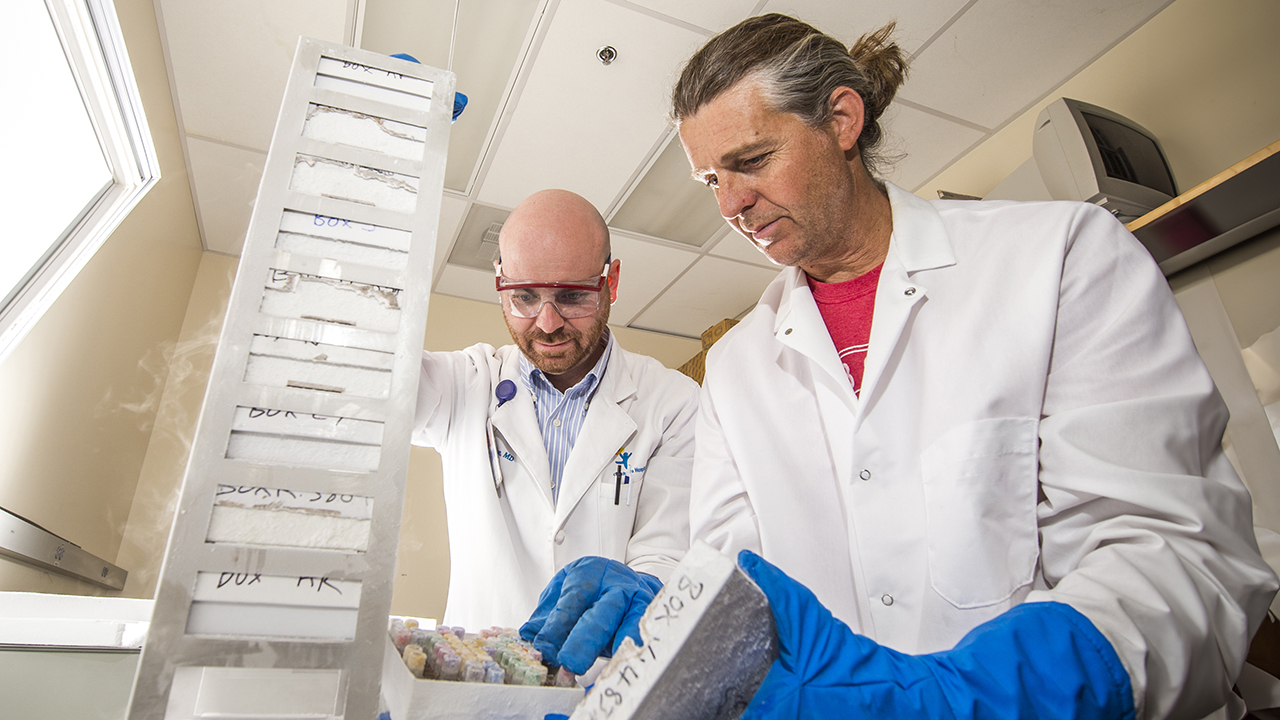Key Takeaways
-
This study presents significant recurrent ependymoma research findings, with new insights into the biological characteristics of posterior fossa group A (PFA) with chromosome 1q gain and/or 6q loss and their relationship to recurrence.
-
The DNA methylation status of PFA at presentation may predict which tumors will develop 1q gain and 6q loss at recurrence, a discovery that will radically transform recurrent tumor assessment.
-
Learnings from this study opens the door for the development of much needed targeted therapies for these patients.
Research study background
Pediatric ependymomas are rare, treatment-resistant tumors that begin in the brain and spinal cord. Posterior fossa group A (PFA) ependymoma, the most common of the tumor subgroups, has the highest recurrence rate and worst prognosis among the ependymoma molecular groups, and in childhood cancer as a whole. If a child with PFA relapses after treatment, these tumors typically cannot be cured, even with additional surgical removal and radiation therapy.
While the biology of PFA ependymoma recurrence is largely unclear, copy number variant (CNV) gain on chromosome 1q (1q+) is the most reliable predictor of recurrence. Additionally, recent findings identified chromosome 6q loss (6-) as an ultra-high-risk factor in PFA, often co-occurring with 1q gain.
This longitudinal multicenter study, led by neuro-oncology researchers at Children’s Hospital Colorado, sought to improve treatment for patients by better understanding the evolutionary factors driving progression of PFA ependymoma. It is the largest study of matched presentation and relapse samples from patients with PFA to examine molecular changes at recurrence.
DNA methylomic analysis revealed extensive chromosome gains and losses at recurrence in PFA ependymoma, particularly chromosomes 1q gain and/or 6q loss. Found in 23% of patient samples at presentation, their presence nearly tripled at first recurrence and increased at subsequent recurrences. In contrast, patient samples with balanced chromosomal copy numbers experienced reduced presence of 1q+/6q- by more than half from presentation to additional recurrences.
Further, multivariate survival analysis found the presence of 1q+ or 6q- at first recurrence significantly increased the risk of relapse, and a greater risk for shorter survival. Researchers also linked susceptibility to 1q+/6q- changes to a global decrease in the heterochromatin-associated DNA methylation at presentation – an event that researchers believe to drive increased chromosomal instability.
“This paper presents the most important findings in recurrent ependymoma in the last 30 years.”
- Andrew Donson, lead author
Clinical implications
This study provides actionable insights, both clinical and preclinical, into the biology of PFA ependymoma recurrence. Given the high prevalence of 1q+/6q- at recurrence and the link to decreased survival, study authors emphasized the need for routine testing for high-risk patients with PFA at presentation and at recurrence in clinical care for 1q+/6q− CNVs, and for including this consideration in clinical trial stratification. The research team has established in vitro and in vivo 1q+/6q− PFA research models, available to the research community, for future preclinical testing. These findings are a gateway to the development of much needed experimental therapies for patients that target the underlying biology of this highly aggressive type of ependymoma.
Featured researchers
Andrew Donson, PhD
Senior research associate
Pediatrics-Hematology/Oncology and Bone Marrow Transplantation
University of Colorado School of Medicine

Nick Foreman, MD
Seebaum/Tschetter Chair of Pediatric Neuro-Oncology
Center for Cancer and Blood Disorders
Children's Hospital Colorado
Professor
Pediatrics-Hematology/Oncology and Bone Marrow Transplantation
University of Colorado School of Medicine

Todd Hankinson, MD
Division Head
Pediatric Neurosurgery
Children's Hospital Colorado
Professor of Neurosurgery and Pediatrics
University of Colorado School of Medicine

Rajeev Vibhakar, MD, PhD, MPH/MSPH
Pediatric oncologist
Center for Cancer and Blood Disorders
Children's Hospital Colorado
Professor
Pediatrics - Hematology/Oncology and Bone Marrow Transplantation
University of Colorado School of Medicine





 720-777-0123
720-777-0123










